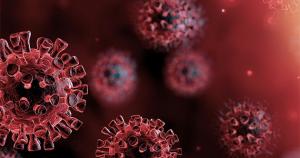Annnnd that's a wrap...let's hope.

Just a quick roundup of a whole series of COVID pandemic "winding down" actions which have taken place or are about to take place:
On March 13th, 2022, the Consolidated Appropriations Act was signed into law, formally setting March 31st, 2023 as the end date for the Medicaid Continuous Coverage provision of the Families First Coronavirus Response Act; since April 1st, so-called "Medicaid Unwinding" has begun.
On January 30th of this year, the Biden Administration announced that the COVID-19 Public Health Emergency would formally end on May 11th, 2023. In light of this, a few days ago, Dan Diamond of the Washington Post reported that federal COVID vaccination mandates will also end less than a week from today:
The Biden administration will end its requirements that most international travelers, federal workers and contractors, health-care workers and Head Start educators be vaccinated against the coronavirus effective on May 11 — the same day it terminates the pandemic-related public health emergency.
The vaccine requirements, first ordered by President Biden in late 2021, had sparked protracted legal and political battles, with Republicans saying the mandates were unnecessary — a position recently joined by a growing number of Democrats and public health experts as the pandemic threat has receded.
Today there were two more important announcements. First, from the World Health Organization:
GENEVA (AP) — The World Health Organization said Friday that COVID-19 no longer qualifies as a global emergency, marking a symbolic end to the devastating coronavirus pandemic that triggered once-unthinkable lockdowns, upended economies and killed millions of people worldwide.
The announcement, made more than three years after WHO declared the coronavirus an international crisis, offers some relief, if not an ending, to a pandemic that stirred fear and suspicion, hand-wringing and finger-pointing across the globe.
The U.N. health agency’s officials said that even though the emergency phase was over, the pandemic hasn’t finished, noting recent spikes in cases in Southeast Asia and the Middle East.
WHO says thousands of people are still dying from the virus every week, and millions of others are suffering from debilitating, long-term effects.
“It’s with great hope that I declare COVID-19 over as a global health emergency,” WHO Director-General Tedros Adhanom Ghebreyesus said.
Finally, back here in the United States, there was this announcement:
Dr. Rochelle Walensky, the director of the Centers for Disease Control and Prevention, will step down from her position on June 30, she announced on Friday, capping a tumultuous tenure at the nation’s leading public health agency as it struggled to rein in the Covid-19 pandemic, the greatest threat to American well-being in decades.
Her departure comes as the administration contends with major vacancies in its Covid-19 response team. Dr. Ashish Jha, the White House’s Covid-19 coordinator, plans to leave his position this month, along with other key officials, including Dr. Nahid Bhadelia, a White House adviser on the global response. A new White House pandemic office has no leader or staffing.
Dr. Walensky has received a lot of criticism over the past regarding how she's handled the pandemic. Some of it is deserved; some of it probably isn't. The biggest criticism I have of her and the CDC in general was the announcement they made almost exactly 2 years ago, on May 13th, 2021:
Federal health officials on Thursday advised Americans who are fully vaccinated against the coronavirus that they could stop wearing masks or maintaining social distance in most settings, the clearest sign yet that the pandemic might be nearing an end in the United States.
Needless to say, it absolutely wasn't "nearing an end in the United States." In fact, as of May 13, 2021, around ~600,000 Americans had died of the disease; another ~500,000 or so have died since then, though it's since slowed down to around 160/day in the U.S. more recently.
Having said that, my main problem with this announcement at the time (remember, this was before the Delta or Omicron waves hit, and the vaccines wouldn't become available for children under 12 for another 6 months or so):
You go to a grocery store. You're vaccinated, so you don't wear a mask. How the hell is anyone else supposed to know whether you aren't wearing a mask because you're vaccinated, or you aren't wearing one because you're an asshole?
I'm not just talking about getting dirty looks from other customers, I mean in terms of actual store policy...how are they supposed to enforce it without an official "vaccine passport" etc?
As others have noted, it's also a problem for several million people who CAN'T take vaccines because they're immunocompromised or have an allergic reaction to them. They've been mostly holed up for over a year now...this means they'll have to stick it out even longer?
Sure enough, that's exactly what happened.
More recently, regarding that 160 per day rate: Assuming it stays at that rate or lower for the foreseeable future, that would come to around 58,000 U.S. COVID deaths per year.
By comparison, between 12,000 - 52,000 Americans died of the flu each year between 2010 - 2020. Make of that what you will. I have no idea when the "right" time to declare the pandemic "over" is. "Long COVID" is still a serious problem, there are still new sub-variants popping up here and there, and 58,000 deaths per year is still a lot of people...but at the same time, if we wait until the number of deaths drops to zero it will never end. What's the "right" threshold? 100 people dying per day? 50? I haven't a clue. But like it or not, most of the world (and most of the U.S.) seems to have declared it "over."
(sigh) Let's just pray that "everyone" is right...



